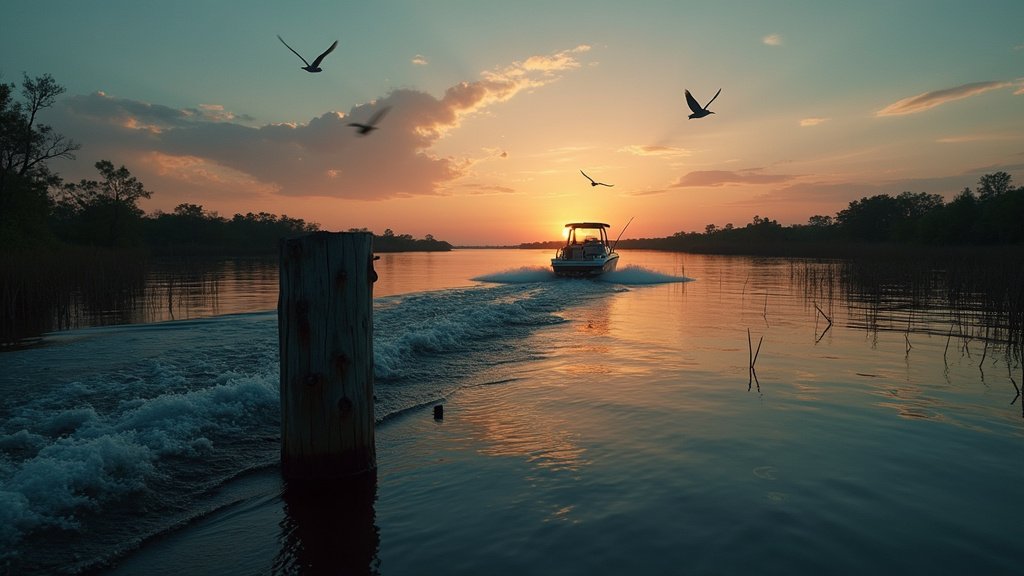Florida’s ‘Boater Freedom Act’ Sparks Concerns Over Potential Poaching Increase
Florida’s recently enacted “Boater Freedom Act” is drawing criticism from environmentalists and conservation groups who fear it could inadvertently embolden illegal poachers. The law, designed to protect the rights of boaters, has raised concerns that relaxed regulations might inadvertently provide cover for illicit fishing and hunting activities. The implementation of the act and its potential impact on Florida’s coastal environments are now under close scrutiny, turning this into a developing story for the state.
The Act’s Intent vs. Unintended Consequences
The “Boater Freedom Act” was created with the stated goal of safeguarding the liberties of boaters across Florida’s extensive waterways. However, the specific details of the act, and the ways in which they interact with existing law enforcement efforts, have become a focal point for critics. The heart of the debate centers around whether the legislation’s provisions, while well-intentioned, could inadvertently create loopholes or weaken existing safeguards against illegal activities. The worry is that those seeking to exploit marine resources illegally may find the new regulations easier to navigate, potentially increasing the prevalence of poaching.
Environmentalists Sound the Alarm
Environmental groups are particularly concerned about the potential for increased poaching of protected marine species. Florida’s coastal ecosystems are delicate, and the removal of even small numbers of animals can have significant, cascading effects. Any disruption to the food web, or the loss of key species, can threaten the health of the overall environment. Organizations dedicated to conservation fear the new law could undermine years of work to protect these vital resources. The concern goes beyond simple numbers; these groups are worried about long-term damage to the state’s natural heritage.
Scrutiny of Enforcement Measures
Law enforcement officials are also under pressure to review the new regulations and how they will impact their duties. The act’s specific provisions and their interplay with existing statutes are being carefully examined. The question now revolves around how the new law affects officers’ ability to identify and stop poachers. The potential for relaxed enforcement, whether deliberate or unintentional, is at the core of many of the criticisms. Officials must determine the best way to manage the new parameters within existing guidelines.
Ecosystem Disruption and Species at Risk
The potential for disruption of delicate ecosystems is one of the most significant concerns. Florida’s marine environments are incredibly diverse, supporting a wide range of species, some of which are already under threat. Poaching, whether of fish, shellfish, or other marine life, can have devastating consequences. Overfishing, for example, can deplete fish stocks, impacting not only the ecosystem but also the livelihoods of those who depend on fishing. The act’s critics fear that a spike in poaching could exacerbate these existing threats and put additional pressure on already vulnerable species.
A Developing Story
The situation is described as a developing story, indicating that the full scope of the “Boater Freedom Act’s” impact is still unfolding. As the law is implemented, authorities and conservationists will likely have a better understanding of its effects. This ongoing evaluation is critical for both mitigation efforts and for informing policy decisions. It is certain that the act will continue to be a source of discussion and debate, as stakeholders strive to balance the rights of boaters with the essential need to protect Florida’s precious marine resources.
The Road Ahead
The coming months will be crucial in determining the long-term consequences of the “Boater Freedom Act”. The state’s environmental agencies will likely need to undertake careful monitoring, data analysis, and possibly, adjustments to existing laws and enforcement protocols. The situation underscores the complexities inherent in crafting legislation that seeks to balance competing interests. The focus will be on gathering evidence, assessing impact, and making the necessary adjustments to ensure that Florida’s coastal environments remain healthy and protected for future generations.





